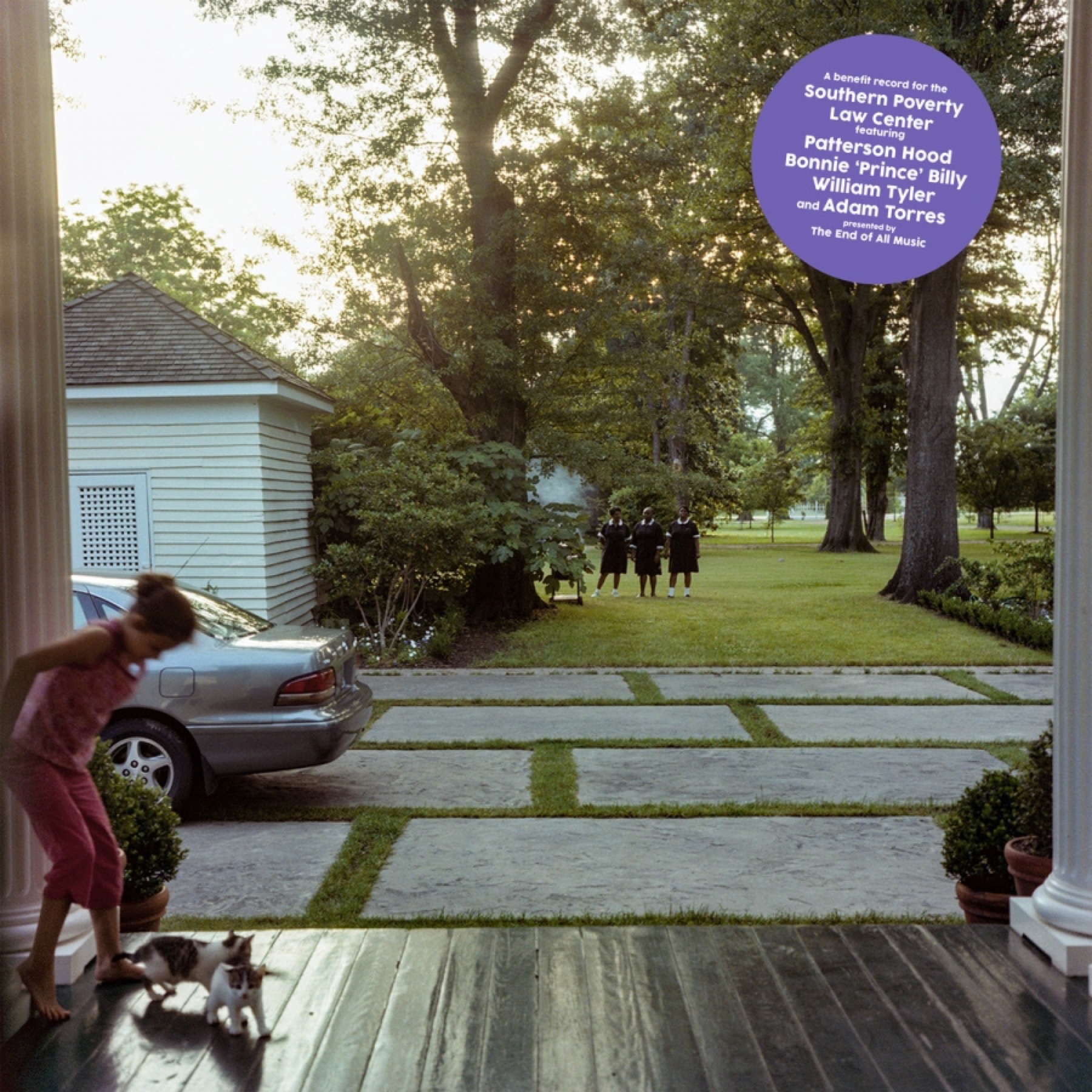
Courtesy of End of All Music
STILL OURS TO RIGHT
By William Tyler
“Reconciliation is not a destination; it’s a path made by healing. Healing, he said, is about permitting intention to invite the unknown, creating a genuinely new path forward. And intention comes from prayer.” —Michelle Garcia, “The Year of the Heavy Moon”
This past spring, our friends at End of All Music—Oxford, Mississippi’s inimitable local record store—released a compilation EP benefitting the Southern Poverty Law Center. The album artwork is from photographer (and frequent OA contributor) Maude Schuyler Clay’s book Mississippi History and the record’s blank flipside bears a “Resist Fear, Assist Love” etching by Indiana artist Nathaniel Russell. Alongside beautiful new songs by Bonnie Prince Billy, Patterson Hood, and Adam Torres, Nashville guitarist William Tyler offers the instrumental composition “Venus and Aquarius,” an acoustic tune propelled by a spirit of resistance. In the short essay below, Tyler explains how his song, inspired by the SPLC’s work, is rooted in history and his commitment to the hard path of reconciliation.
—The Editors
Oxford-lifer William Faulkner once wrote “The past is never dead. It’s not even past.” In the South, the Deep South in particular, this can be an almost overwhelming truth at times, and it’s one I’ve struggled with my whole life. I’m a white man with multiple generations of Mississippi heritage on both sides of my family. I have always wanted to engage with the troubled history of my “homeland,” both as an artist and as just another sensitive soul who spends a lot of time and energy in the space between my ears.
Both of my parents grew up in South Mississippi during the sixties and attended Ole Miss in the early-seventies. My dad’s hometown, McComb, was at one point the epicenter of Klan violence in Mississippi. Church bombings and murders of activists were common. My mom was from Jackson and she vividly remembered such awful events as the riots surrounding the enrollment of James Meredith at Ole Miss and the murder of Medgar Evers. After they graduated, they moved (slightly) north to Nashville to work in country music. As a kid, I felt like, if anything, my folks had escaped Mississippi. Even though we visited family there multiple times a year, I always had an unsettled relationship with the place. The weight of the history and the weight of the air during the peak of summer seemed to coexist in a suffocating symbiosis.
My folks taught me to question not just my history, but my privilege, too. My mom didn’t spend her childhood wanting to be Scarlett O’Hara, and even though we loved listening to Shelby Foote talk about the Civil War, we knew he was still apologizing for not just a lost cause, but a truly wicked one. I submerged myself in the history of both the Civil War and the civil rights movement in an attempt to understand, to try to face something that so many white Southerners both deny and obfuscate. The mythology of the Old South and what it stood for is precisely that—mythology—and a particularly sinister one meant to keep a large portion of citizens suppressed.
In 2017, we are faced with the naked reality of hatred, racism, and historical denial in an amplified, emboldened fashion. It comes out of the White House every day; it was seen in the rallies around the country last year during the election. It feeds itself on this type of Lost Cause mythology that so many Southerners have been telling themselves since before the treaty at Appomattox was signed. Except now it’s about making our nation “great again” without any sort of inclusiveness, acceptance, or tolerance.
Confronted with the hideous, we must commit to rebuilding, resetting, listening, doing good, fighting injustice, and trying to keep an eye on maintaining beauty. It’s on all of us. When David Swider from End of All Music contacted me about this project to benefit the SPLC, I was on board the minute he asked. It was just after the election, and I think a lot of us were searching for minuscule yet tangible ways to help contribute. My music is instrumental but it’s political. It’s protest music in its own way.
The SPLC is (and has been since 1971) on the front lines of the resistance. They fight for those who often have no voice, legally speaking. They do their work without the knowledge or praise of many. And most importantly for me, they do it in the Deep South. Montgomery, Alabama, was the first headquarters of the Confederate government during the Civil War; now it’s the home base of one of the nation’s most important resistance groups. The past isn’t dead and the crimes of the past are still ours to right. What could really make this nation great again is a lot of humility, vigilant opposition to all kinds of structural elitism, and a brave ability to face our history honestly.
Enjoy this feature? Subscribe to the Oxford American.

